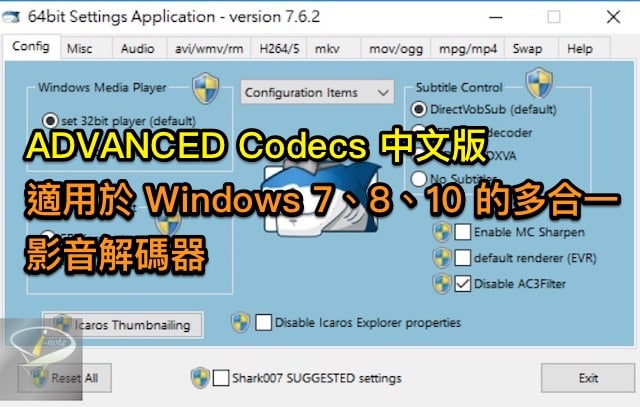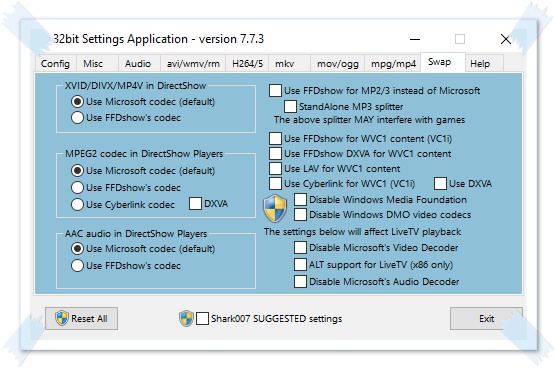

Snapshots you take before an upgrade can be used as restore points if you need to roll back the cluster to its original version. We recommend that you back up your cluster state and indexes using snapshots. If you use security features, make sure to read A word of caution for information about backing up and restoring your security settings.

Once you identify which files you want to back up, copy them to remote storage for safety. Some examples include opensearch.yml, opensearch_dashboards.yml, plugin configuration files, and TLS certificates. Generally, these files will be located in either of two directories:

Mitigate the risk of data loss by backing up any important files before you start an upgrade. For example, plugin versions 2.3.0.x work only with OpenSearch 2.3.0.
ADVANCED Codecs 8.9.0 Patch#
Major, minor, and patch plugin versions must match OpenSearch major, minor, and patch versions in order to be compatible. Go to Available plugins to see a reference table that highlights version compatibility for bundled OpenSearch plugins. If you use any third-party plugins, then you should check the documentation for those plugins to determine whether they are compatible. Official OpenSearch Project plugins can be found in the OpenSearch Project repository on GitHub. Review the plugins you use to determine compatibility with the target version of OpenSearch. If your OpenSearch cluster interacts with other services in your environment, like Logstash or Beats, then you should check the OpenSearch tools compatibility matrices to determine whether other components will need to be upgraded. Reviewing the OpenSearch tools compatibility matrices For example, upstream or downstream components might need to be modified to be compatible with an API change (see meta issue #2589). Review Breaking changes before beginning any upgrade procedures to determine whether you will need to make adjustments to your workflow. It’s important to determine how the new version of OpenSearch will integrate with your environment. Stop any nonessential indexing before you begin the upgrade procedure to eliminate unnecessary resource demands on the cluster while you perform the upgrade.

Reviewing the OpenSearch tools compatibility matrices.The answers to questions like these will help you determine which upgrade path will work best in your environment. Do you have infrastructure in place to stand up the new cluster in a testing or development environment before you move it into production, or do you need to upgrade the production hosts directly?.If your cluster is being used in production, how impactful is downtime?.How long will the upgrade process take?.For example, consider the following questions: Take time to plan the process before making any changes to your cluster. See the Contributor Guidelines to learn how you can help. If you would like a specific process to be added or would like to contribute, create an issue on GitHub. To see what’s coming next or to make a request for future content, leave a comment on the upgrade and migration documentation meta issue in the OpenSearch Project on GitHub. We recognize that users are excited about upgrading OpenSearch in order to enjoy the latest features, and we will continue to expand on these upgrade and migration documents to cover additional topics, such as upgrading OpenSearch Dashboards and preserving custom configurations, such as for plugins. To view a list of previous releases or to learn more about how OpenSearch uses versioning, see Release Schedule and Maintenance Policy. To learn about upcoming features and fixes, review the OpenSearch Project Roadmap on GitHub. OpenSearch uses Semantic Versioning, which means that breaking changes are only introduced between major version releases. The OpenSearch Project releases regular updates that include new features, enhancements, and bug fixes.


 0 kommentar(er)
0 kommentar(er)
